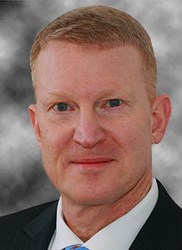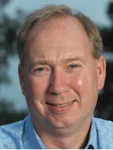Diesels To Drugs: What Trucks Teach Pharma About Quality And Leadership
By Louis Garguilo, Chief Editor, Outsourced Pharma

Mikael Ericson worked for Scania, the renowned global leader in the manufacture of heavy trucks and buses. That, for him, logically led to a 12-year career at AstraZeneca. Which, with a more intuitive logic, led to his September appointment as CEO at Kemwell AB, the Swedish arm of the India-based contract development and manufacturing organization.
Add Ericson to the growing list of executive-level ascensions in a rapidly moving pharmaceutical outsourcing industry.
Outsourced Pharma has reported on the urgency for metamorphosing CDMOs to fill leadership positions. How and with whom these new positions get filled could determine which service providers become industry butterflies … or moths.
Recently, newly promoted Antonio Magnelli of Patheon told us about cultural continuity for customers; Todd Nelson of WuXi explained ex-pharma execs enhance customer service. Herein, Ericson and Kemwell add to our discourse.
Kemwell itself is representative of the industry. Founded in Bangalore in 1980 to serve the Indian pharmaceutical industry, it soon transitioned to a global service provider. It formed Kemwell AB by acquiring two Pfizer facilities in Uppsala, Sweden, the first in 2006 and second in 2010. Next it landed on U.S. shores and added capabilities with the acquisition of drug delivery research firm Cirrus Pharmaceuticals, Research Triangle Park, North Carolina. Kemwell lists GlaxoSmithKline, Bayer, Novartis and Pfizer as strategic customers, and has a strong relationship with Boehringer Ingelheim at its newest biopharmaceutical development and manufacturing facilities in Bangalore.
In short, a CDMO with growing global assets and capabilities augmenting expanding facilities at home. Additional leadership becomes essential.
Automobiles, AZ and A CDMO
At CPhI Worldwide 2014 in France, I start my conversation with Ericson by asking what lessons he brings from the automobile industry to drug development and manufacture. It is the right first question: The staid but avuncular Swede breaks into a smile and replies, “operational excellence.”
“The historical focus and emphasis on continuously raising quality and value in the manufacturing process,” he adds. Ericson believes that despite the achievements of the pharmaceutical industry, compared to an industry like auto, it still needs to improve on the manufacturing front. “Quality is on everybody’s mind, but the value part of the quality equation—the elimination of waste, the addition of speed to processes—needs to be studied and offered to customers.”
He continues: “We can teach companies the difference between adding value, and adding unnecessary or wasted activities, all in the name of the customer.” He points out that even under a cGMP environment, understanding what processes and business functions need the added burden of compliance, and which don’t, is important. He also mentions that the auto industry has more capacity than demand and generally margins are lower than in the drug industry; this by necessity has driven manufacturing innovation.
Ericson doesn’t believe the pharma industry has challenged costs sufficiently or on a sustained basis. “Even if we say we have to be efficient, we don’t see reducing costs as added value in the same way,” he explains. “Toyota is really the origin of this thinking: things such as looking at lead times more closely, or thinking about capital being tied up. In pharma today we need to continuously ask, ‘What is really adding value for the patient? For our customers? For our business?’ These answers should be applied to the overall goal and definition of quality.”
Ericson had the opportunity to put theory into practice when AstraZeneca hired him as director of material supply in 2001. It worked out: Four promotions later, in 2010, he was named head of production at one of the world’s largest production sites for tablets and capsules, at the AZ facilities in Södertälje (and just 120 kilometers from his current location at Kemwell AB).
“For example,” he says, “I was part of a management team at AZ that succeeded in reducing workforce from 5,000 to 3,000. We measured an increase in productivity by 10 percent per year for several years. While here at Kemwell workforce reduction is not needed, we will utilize various strategies to increase productivity.”
Working Across The Globe
Nowadays, global combinations and international convergences of all kinds are common. Nonetheless, a born-and-raised Swede who spent his entire career in Sweden, Ericson must have contemplated what might appear an improbable cultural synthesis of India expanse with Swedish conservatism before taking on his current role.
Or maybe not.
“Actually,” he says, “I was not reflecting very much on that part. I was more challenged by the opportunity to change something, build from my former experience. That was more the driver for me.”
And what are those challenges and opportunities?
“To make our organization a fast-responder to market changes and customer needs. We have state-of-the-art facilities, but I can see we are not utilizing them to the extent we could. To change the mindset to one of taking on a more modern way of manufacturing. We do that by improving working methods. Once that platform is established, we’ll see how to really expand this business.”
Many of Ericson’s employees at the Kemwell AB facilities have been there since the Pfizer days. They’ve had to adapt to working for a CDMO and a new international parent company. However, Ericson says Kemwell has allowed “freedom to retain the Swedish cultural integrity and to operate fairly independently. Our employees have found the transition quite easy.” He reminds me that Kemwell has a Swedish Chairman of the Board (PerÅke Oldentoft) who Ericson stays in close contact with.
Ericson adds: “Kemwell will remain competitive and continue to focus on markets where quality is essential. We will take advantage of being close to our European customers, manage our costs and cater to the varied needs of the different regulatory bodies.”
The lessons of Scania and Toyota, and of continuous improvement; an understanding of the culture of large-scale contract manufacturing—Kemwell boasts the largest liquids and biopharmaceutical contract manufacturing facility in India; pharma experience in applying theories of quality and cost. This new leadership at Kemwell AB, as it was with our earlier examples at Patheon and WuXi, is certainly appropriate to the challenges at hand. Pharma should be sure this is true at all its outsourcing service providers.

Mikael Ericson worked for Scania, the renowned global leader in the manufacture of heavy trucks and buses. That, for him, logically led to a 12-year career at AstraZeneca, and then becoming the CEO at Kemwell AB.
